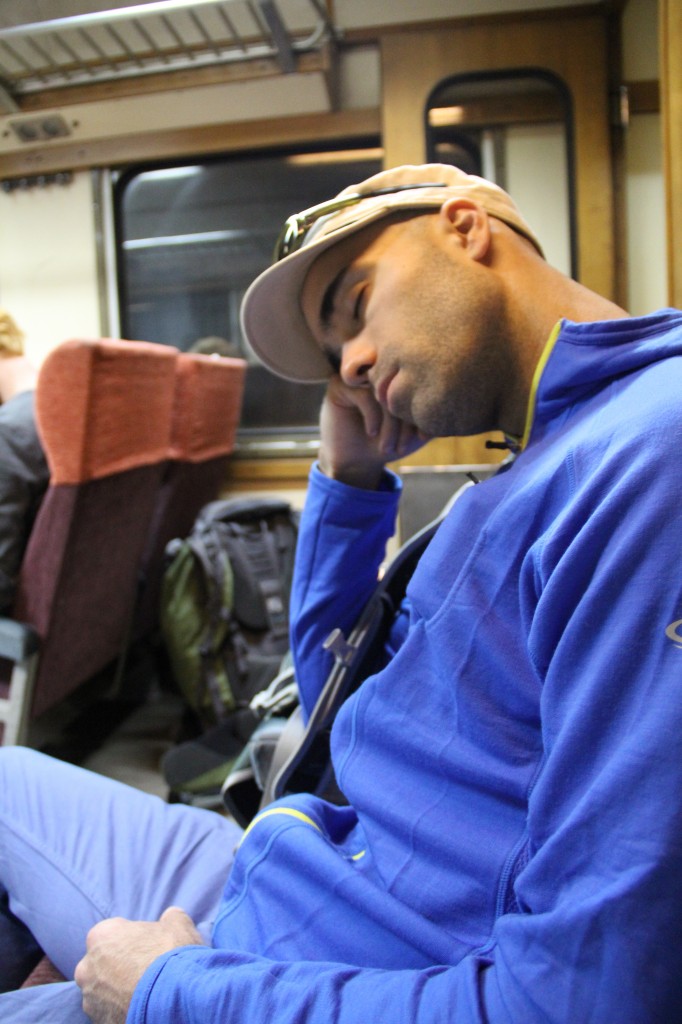Most of my trips recently have been to developing countries so I thought it would be an interesting post to write-up some travel safey tips and tricks I have learned over the years of traveling.
You will run into a lot of people who will think you are crazy traveling to an under developed country without knowing anyone who lives there or being able to speak the local language. For me, these are the reasons that make a trip like this the most rewarding and adventurous.
Insurance. Have travel insurance/emergency evacuation insurance/health insurance while abroad. Always. This being said, if you decide to spring for travel insurance, read the fine print thoroughly. Some of them have so many exceptions as to make them worthless in the real world.
Scan a copy of your passport. Email it to yourself and send a full color copy of your passport to a trusted friend or relative.
Carry extra passport photos. Carry a couple of extra passport photos with you. You will never know when or why you may need them.
Carry a false wallet. Carry a decoy wallet with credit cards that aren’t active anymore, library cards, student ID, etc. Put a small amount of cash in this wallet and use this wallet when you are buying things in public and busy areas. If you get robbed, this will hopefully be the wallet that gets grabbed instead.
Call your credit cards and banks. Prior to traveling, call your credit card company and bank and tell them exactly where and when you’ll be going. Otherwise they tend to lock down the account when they see access from unfamiliar locations overseas.
Pack a Padlock. Always carry a combination padlock for easily locking things up. They come in handy and combination padlocks are preferred so you don’t have to keep track of a key.
Send yourself an email with a credit card number of a card (or two). Set up a dummy email and send yourself an email with the numbers of the credit cards you aren’t carrying. Develop your own encryption for this so you don’t send the actual number. For example, replace the number 1 with A, 2 with B, etc but make it more complicated than that. Another way of doing this is to use Gmail, save as draft, access anywhere without having to send anything.
Send yourself an email with phone numbers. Email yourself all your banks/credit card/travel insurance contact info so that you can access it should you lose everything. BCC a trusted friend or relative.
Looking for transport, taxi or overland. When you are looking for transportation by taxi or bus, if someone approaches you with an offer the answer is automatically ‘no’. Go find the guy who is waiting to be found.
Pay at the end. After securing transport, pay only after you arrive at your destination. If they insist on payment up front, find someone else (obviously, planes, trains, and buses are an exception to this rule).
Drink more Coke. Fanta and Coca Cola (in a heavily recycled glass bottle) is delicious when abroad in a way that bears no comparison whatsoever to the drink stateside. The use of sugar instead of high fructose corn syrup does wonders.
Don’t be too paranoid. There’s a ton of fear mongering out there. Most “3rd world countries” are quite safe, with the usual precautions and common sense.
Packing light is the way to go. Don’t take too much stuff, and never take anything you wouldn’t want to lose. I just traveled for eight weeks from Peru to Colombia with only a carry-on, and would do so again.
Know what countries are next door. Before you go, familiarize yourself with the surrounding countries. You never know when you might want to change your plans and hop a bus over to the country next door.
Ask. Ask. Ask. Ask the locals about the next place you plan to travel to, the best place to eat, the easiest way to get somewhere, the best hike. Even if you don’t end up taking their advice, it is a good starting point on finding the information you need.
Carry two forms of payment. If possible, have an alternative form of payment with you–debit card, credit card, traveler’s cheque, etc. If counterfeiting is common where you are, non-local cash may not be accepted, even if it is the ‘mighty’ USD.
Hide your Rolex. Leave all your expensive jewelry, watches, and accessories at home. You don’t want to stand out more than necessary. If you are not traveling with your phone, carry a cheap travel watch with an alarm to help you wake up for early transportation departures.
Check your bills. Make sure the cash you take with you and obtain along the trip is perfect. No tears or wear marks. Many places won’t accept worn currency for exchange or payment. When you get change, if it is not in the local currency, do not accept it unless it is also perfect or you may not be able to spend it until you get home. The obvious exception to this is in places where nobody cares about the condition of the currency.
Avoid arriving at night. Try to avoid arriving into a new city after dark, and consider staying at a hotel that has a free shuttle service (even if it may cost a bit more) the first night if it’s going to be the end of a long 12-hour haul. Trying to orient yourself in a new city, deal with touts, in the dark, in the rain, while insanely fatigued is not fun at best or safe. Same goes for making camp in remote areas.
Bring a light. Pack a small flashlight that runs on AA batteries. 123’s are a first world luxury, but AA’s can be found almost anywhere.
Hide your passport. Keep your passport somewhere that isn’t easily accessible if someone reaches into your bag. Sew a secret compartment to stash it in.
Enjoy the adventure. Above all else, never forget to HAVE FUN. There’s just no point in traveling if you forget this rule.
Do you have any tips or tricks that you use? Share with us below!
If you enjoyed this post, why don’t you follow Adrift Anywhere on Facebook or subscribe to get updates on budgeting tips, travel advice and tips!


One I would add, bring a day pack for valuables. A lot of times on busses and trains your main backpack will be under the bus or out of sight and many places have perfected the in transit bag swipe. Having a bag you can toss you valuables in and keep close at all times has prevented many unfortunate situations from becoming disastrous.
That’s a great piece of advice. I would hate to not have my valuables on me even if they’re in the luggage compartment…you just never know
That’s a great piece of advice. I would hate to not have my valuables on
me even if they’re in the luggage compartment…you just never know